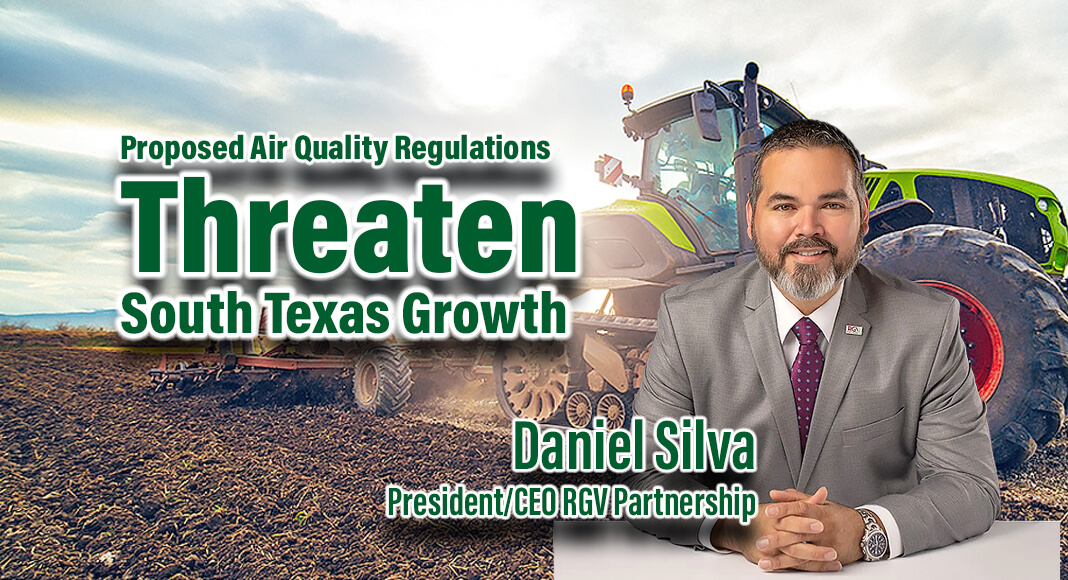
Texas Border Business
By Daniel Silva
South Texas is becoming a national hub for manufacturing. Our area has added 2,000 new manufacturing jobs over the last five years, representing about 30% of all new manufacturing jobs in the U.S. according to Mike Willis of the South Texas Manufacturing Association. Further, Keith Patridge at the McAllen Economic Development Corporation is finding many companies are moving labor-intensive plants to the U.S. from Mexico as automation becomes more prevalent.
However, the Environmental Protection Agency (EPA) is currently considering new rules for particulate matter (PM) 2.5 emissions – commonly found in farming, manufacturing, and construction – that could bring this growth to a grinding halt. The proposed rule would significantly tighten the current regulations, meaning communities will struggle to comply with the required PM2.5 levels and face burdensome permitting requirements and onerous regulations, endangering local economies and the industries that support them.
The Rio Grande Valley Partnership is opposed to these new regulations. Data from the EPA’s own analysis suggests our region would be unable to meet the new rules, potentially wreaking havoc on local manufacturers as they try to modify facilities and operations to comply with the news standards. These companies are already battling high energy costs and labor shortages; more red tape will threaten future investment and overall business health.
Manufacturing is not the only local industry at significant risk. Cars and trucks contribute significantly to PM2.5 emissions, and South Texas ports of entry serve millions of these vehicles each year. From Rio Grande City to Brownsville, the five ports of entry the Partnership represents handle a staggering amount of inbound vehicles: over 13,000 buses, 1.1 million trucks, and 11 million passenger vehicles entered the U.S. in 2022 according to the U.S. Department of Transportation— and these statistics don’t even account for outbound vehicles, which the department doesn’t collect.
Texas has more cross-border points of entry than any other state, so the aforementioned volumes are replicated all along the Rio Grande as tens of millions of cars, trucks, and buses use Texas ports to enter the U.S. – not to mention sea and air ports. This infrastructure network is profoundly successful and cements Mexico as our country’s primary trading partner. Goods reach markets across this country because of our local ports, helping to fuel our national economy, but also inevitably generating emissions locally.
If PM2.5 standards are significantly lowered and South Texas is designated as a “nonattainment” area in the future, international trade will suffer as companies forego facility construction and expansion and dedicate scarce resources toward complying with stricter standards instead of increasing capacity and hiring more workers. We would also risk losing federal funding for infrastructure projects.
These EPA air quality regulations penalize our success and threaten economic growth – a recent National Association of Manufacturers study found the new PM2.5 regulations threaten $15.6 billion in manufacturing economic activity and 29,000 jobs in Texas alone. Additional supply chain disruptions would have ripple effects across the country.
Air quality has dramatically improved in recent decades with PM2.5 emissions declining 44% since 2000 according to the EPA. Finalizing unachievable air quality regulations will harm Texas manufacturing, transportation, construction, ranching, agriculture, among other industries. If these with new PM2.5 rules move forward, the growth of South Texas is in serious jeopardy. We hope the EPA reconsiders.
Daniel Silva is the President/CEO of the Rio Grande Valley Partnership.












